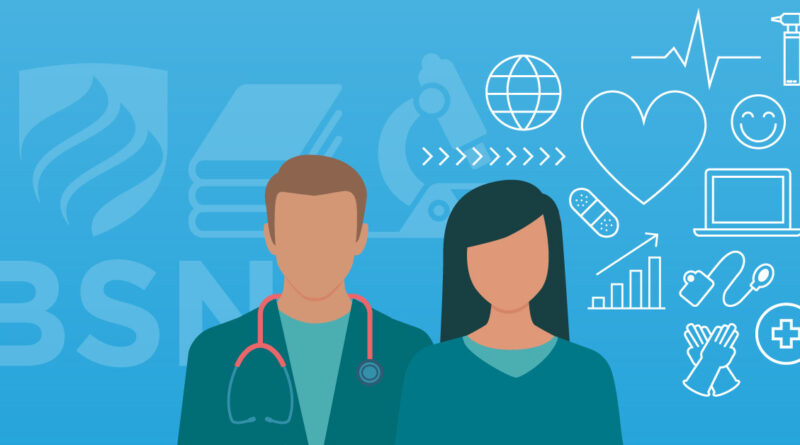What Can You Do With A BSN Degree Besides Nursing?
Think about someone with a nursing degree; what image do you conjure up in your mind? Is it someone in scrubs administering bedside care to the patients? If that’s your mental portrayal of a nurse, you are not alone. Most people think there is one thing that you can do with a nursing degree, such as a BSN, which involves administering medication to the patients, offering them food, helping them with posture, taking them for surgery, and similar other things. But to your surprise, a BSN degree offers you more working choices than you might know. Well, at least it is certainly beyond the cliché image of nurses we had in mind for ages.
Working as an RN at the bedside care is pretty tiring; you have to be on your toes all the time. Or worse, you might be hearing calls from all sides as you are never working with one patient only. Unfortunately, due to the stress-induced nature of this field, burnout is a common phenomenon in nurses who witness death and trauma regularly. So, it is justified when graduates with a BSN degree look for other careers.
What can a nurse do with a BSN degree if not nursing?
BSN is an important degree in nursing; its curriculum is diverse and multidimensional. It is also one of the requirements when going for higher education degrees such as an MSN and a DNP. Hence, there is no doubt that you can easily enhance your nursing career with a BSN degree, but that’s not the only benefit you get from it.
Nursing schools train nurses with essential qualifications for a variety of healthcare positions. Nurses with professional education are open to leadership, management, teaching, research roles. Apart from knowledge about clinical practice, nurses also learn the art of effective communication, problem-solving, team leading and teamwork, critical analysis, and decision-making skills. With these high-level skills, nurses are ready to excel in any career in healthcare and nursing. So let’s see what you can do with a BSN degree besides nursing.
Become A Nurse Educator
If you don’t want to be a nurse involved in patient care, why not train those who want to do it—this is what the position of a nursing educator entails. They work in the educational institutional and other clinical and non-clinical settings to teach new and currently working RNs. They share their theoretical skills and life experiences to prepare the next generation of nurses. Thus, it won’t be unbecoming to say that they have an important role in combating the nursing shortage by preparing new nurses to take up the nursing roles across healthcare in a few years.
Nurse educators are also associated with pedagogical activities and devise teaching methods and techniques suitable for diverse audiences. As a nurse educator, you will develop, design, analyze, implement and evaluate course curriculum and create student lesson plans. To excel in this field, a nursing educator needs to stay updated with the current trends and breakthroughs in medical science to provide students with the most recent information.
A nursing educator job is best if you prefer autonomy but with a sense of responsibility, a desire to share knowledge with others, and deep clinical experience.
Opt For Leadership Positions
In today’s high-tech and high-speed environment, autonomy and leadership are becoming integral components of a nurse’s job. Nurses can receive better patient outcomes, better patient care, and improved patient satisfaction with the ability to make timely decisions. While many nurses entrusted with bedside care are getting enough autonomy these days, in reality, greater control is the domain of those in leadership and management positions.
Management positions open to you after a BSN degree include a director of nursing, nurse administrators and managers, chief nursing officers, and the likes. Many of these positions are open to you after spending a few years and getting experience in nursing, but you can excel in these positions ultimately. You don’t necessarily need to leave your workplace to ascend to these positions.
You might start to manage the same department or nursing unit where you worked as a nurse.
Medical Billers
Your job as a medical biller involves working in the administration. Medical billers collect bills from patients and insurance companies. They also draft and send medical bills to patient homes for payments. Else, they can use the health codes to bill the insurance company serving a particular patient.
Apart from sending invoices, medical billers also update billing records of patients, make sure they pay on time, create a payment plan in case of reimbursement in installments. Moreover, you will also maintain detailed records of account payables and receivables. Finally, working as a medical biller becomes easier for nurses due to their previous records in healthcare.
Become A Health Writer
As a healthcare writer, you use your extensive medical and nursing information to create health articles and publications.
You can work with a medical facility, conduct academic research, affiliate with the marketing department, or get associated with a health and medical magazine.
You might have often seen informative pamphlets and brochures in hospitals and other medical facilities informing the public about a disease. The content and design of these pamphlets might also be the work of a medical writer. The perk of a BS degree is that you are familiar with the correct medical information, so there are no chances of distributing information among the public that is incorrect.
Get into Medical Researching
Another job option available to you as a result of a BSN degree is the job of a medical researcher. As a medical researcher, you will use your medical background to research diseases, medicines, the human body functions, and new interactive procedures and medications. With better research, you can help those associated with patient care by informing them about the human body and various phenomena and improving diagnosis. You can also work specifically for the nursing field and conduct research to improve nursing practices and patient care.
Conclusion
The nursing field is much broader than we know, but we tend to restrict it to bedside care only due to inadequate knowledge. Beyond bedside care is an extensive range of opportunities available to you after a BSN degree. You can choose to go into administration, finance, research, and much more. More advantages of pursuing a non-nursing career with a BSN degree include better salary, more preference over other candidates, and a higher likelihood to excel and reach top-tier roles. In addition, you can garner better patient satisfaction regardless of your job title with better education.




